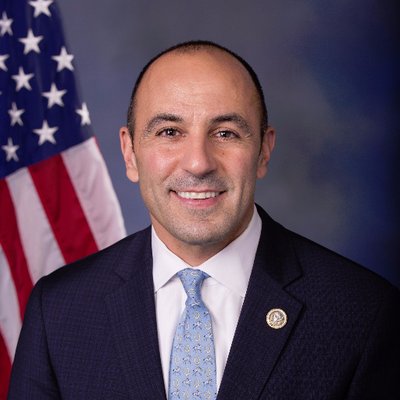Courtesy of Congressman Jimmy Panetta’s Office:
Congressman Jimmy Panetta (D-Carmel Valley) announced that he cosponsored the Paid Sick Days for Public Health Emergencies and Personal Family Care Act to provide paid sick days immediately to workers in light of coronavirus (COVID-19), and in preparation for future public health emergencies.
The legislation builds on the existing Healthy Families Act, H.R. 1784, of which Congressman Panetta is a cosponsor, which would allow workers to earn paid sick leave.
The Paid Sick Days for Public Health Emergencies and Personal Family Care Act requires all employers to allow workers to accrue seven days of paid sick leave and to provide an additional 14 days immediately in the event of any public health emergency, including the current coronavirus.
At least 545 people have been treated for coronavirus in 34 states and Washington, D.C., and at least 22 patients with the virus have died. The outbreak has led both California and Washington state to declare states of emergency, and has prompted many schools to close and businesses to recommend workers stay at home. Twenty-seven percent of private sector workers do not have paid sick days and will go without pay if they cannot show up at work.
Centers for Disease Control and Prevention (CDC) guidelines advise people to stay home if they are sick. However, for many workers—including many restaurant workers, truck drivers, people in the service industry, and more—staying home from work means losing a paycheck or losing a job. This bill will not just ensure that workers can take care of themselves and their families, but it will also ensure that workers can help keep their communities safe.
“Paid sick leave is crucial for the American workforce and our economy, especially at a time like this with the growing threat of the coronavirus. The CDC and local health officials advise that ill workers should stay home so as not to infect other employees or customers. This bill allows sick workers to stay home without the fear of losing pay and others the confidence to continue to contribute to our workforce and economy. I urge House leadership to bring this legislation to the floor for a vote,” said Congressman Panetta.
“The lack of paid sick days could make coronavirus harder to contain in the United States compared with other countries that have universal sick leave policies in place,” said Congresswoman Rosa DeLauro (CT-03). “No one should face the impossible choice of caring for their health or keeping their paycheck or job, especially when a sudden public health crisis occurs. But millions of hard-working people must make this decision every time they get sick or a family member needs care. Low-income workers and their families could be hit even harder by the virus, as low-wage jobs are at the forefront of not providing sick leave benefits. That is why I am proud to sponsor this effort with Senator Murray to ensure that workers are able to follow the directive of public health officials and stay home without the fear of losing their paycheck.”
“The coronavirus is highly contagious and the problem isn’t going away anytime soon,” said Senator Patty Murray (D-WA). “Workers want to do the right thing for themselves, their families, and their communities—so especially in the middle of public health crises like this, staying home sick shouldn’t have to mean losing a paycheck or a job. This bill would immediately give workers the ability to care for themselves, their families, and help keep their communities safe. We need to pass it without delay.”
Specifically, this bill would:
- Require all employers to allow workers to gradually earn seven days of paid sick leave.
- Require all employers to provide an additional 14 days of paid sick leave, available immediately at the beginning of a public health emergency, including the current coronavirus crisis.
- Ensure paid sick leave covers days when your child’s school is closed due to a public health emergency, when your employer is closed due to public health emergency, or if you or a family member is quarantined or isolated due to a public health emergency.
The legislation has been endorsed by: National Partnership for Women and Families, National Employment Law Project (NELP), Center for Law and Social Policy (CLASP), Center for American Progress (CAP).






